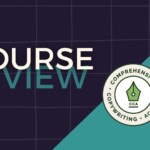This blog may contain affiliate links, meaning we’ll earn a small commission if you purchase from any of these links. You can learn more about affiliate links on this site here.
Estimated reading time: 10 minutes
Table of contents
Making over $100,000 at a primary job often fills people with a sense of financial security. Yet, many choose to take up freelance work on the side. Sounds puzzling? Well, it’s not about money alone. It’s about passion, honing skills, and gaining a broader experience.
I’m one of them. I earn a six-figure salary at my job, but I still freelance. Why? It’s about more than just the extra cash. Freelancing opens up new opportunities, helps me grow professionally, and keeps my skills sharp.
Let’s delve deeper into my reasons for balancing a high-earning job and freelancing.
My Journey to Making 6-Figures at My Job
Developing a High-Income Skill Set
When it comes to achieving financial success, developing a high-income skill set is crucial. In my journey to making six-figures at my job, I realized the importance of continuously honing my skills and expanding my knowledge. It’s not enough to rely solely on the education and experience we gain in school or through our jobs. We must actively seek opportunities to learn and grow. For me that, that has come mostly from industry associations, conferences, and online courses.
I’d say that my high-income skill set is problem-solving – I love understanding a business entirely and then finding solutions for big and small problems. Additionally, I have become an expert in different pieces of software – software no one else was willing to learn or master – to help bring the team or organization to the next level.
Climbing the Corporate Ladder
While developing a high-income skill set is essential, it’s equally important to navigate the corporate world strategically. Climbing the corporate ladder requires a combination of hard work, dedication, and effective networking. It’s about positioning oneself for success and taking advantage of opportunities as they arise.
In my own journey, I recognized the value of building strong relationships with mentors, superiors, and colleagues. These connections provided me with guidance, support, and valuable insights into the inner workings of the company. By actively seeking out feedback and advice, I was able to make informed decisions and showcase my abilities to the right people.
Additionally, I learned the importance of taking on challenging projects and going above and beyond my job description. By demonstrating my willingness to take on extra responsibilities, I proved my commitment and showcased my capabilities. This proactive approach not only helped me stand out but also opened doors to new opportunities for growth and advancement.
Leveraging Education and Certifications
Education and certifications can play a significant role in one’s journey to making six-figures at their job. While formal education is undoubtedly valuable, it’s important to recognize that learning doesn’t stop with a diploma or degree. Continuous education and staying updated with industry trends are keys to staying ahead of the curve.
Throughout my career, I made a conscious effort to invest in my education through relevant certifications and training programs. These certifications not only helped me gain specialized knowledge but also provided me with a competitive edge in the job market. Employers value professionals who demonstrate a commitment to ongoing learning and professional development.
Moreover, leveraging education and certifications allowed me to negotiate a higher salary and position myself as an expert in my field. When employers see that you have invested time and effort into expanding your knowledge, they are more likely to recognize your value and compensate you accordingly.
The Benefits of Freelancing

As someone who makes a comfortable 6-figure income at my job, you might wonder why I still choose to freelance on the side. Well, let me tell you, the benefits of freelancing are numerous and can greatly enhance both my professional and financial life. Let’s delve into three key advantages that freelancing offers: flexibility and freedom, expanding professional networks, and the ability to supplement my income.
Flexibility and Freedom
One of the biggest draws of freelancing is the flexibility and freedom it provides. Unlike a traditional job, freelancing allows me to set my own schedule. While I get to work remotely now, in the past I worked in an office and appreciated that freelancing allowed me to work from anywhere. Whether it’s adjusting my working hours to accommodate personal commitments or taking my laptop to a coffee shop while traveling, freelancing provides me with the freedom to work on my own terms.
This flexibility not only enables me to strike a better work-life balance but also allows me to pursue other passions and interests outside of my primary job. I can take on projects that align with my personal interests or explore new avenues that I may not have the opportunity to explore in my full-time role. The ability to shape my own work environment and choose the projects I work on is truly liberating.
Additionally, the power that I feel knowing that I have a thriving freelance side hustle going is really empowering. I love my job and don’t ever intend to leave – truly, my boss is the best boss I could ask for. But what if she decided to close the company tomorrow? Or if something unforeseen happened? I won’t be left worried about paying bills. And not just because I have an emergency fund. Having a side hustle is powerful because I know that no matter what happens, I can scale it up if I needed full-time income from it.
I wish more of my friends had a side hustle because I think many of them would appreciate the power and ability to just walk away from a toxic job, leave a bad boss, or just move across the country. To know that you don’t need that job or boss, and that you can truly do it on your own is incredible.
Expanding Professional Network
Freelancing opens up a world of opportunities to expand my professional network. By working on various projects with different clients, I get to collaborate with individuals from diverse industries and backgrounds. This exposure not only broadens my horizons but also allows me to build valuable connections and learn from professionals who excel in their respective fields.
Networking is crucial for professional growth, and freelancing provides ample opportunities to meet new people, attend industry events, and join online communities. These connections can lead to new job prospects, partnerships, or even mentorship opportunities that can further enhance my career trajectory. In today’s interconnected world, building a strong professional network is essential, and freelancing offers a fantastic avenue to do just that.
Plus, it’s just fun to work with new people! It adds some nice variety to my work day.
Supplementing Income
While my full-time job provides financial stability, freelancing allows me to supplement my income and increase my earning potential. By taking on freelance projects, I can leverage my skills and expertise to generate additional income streams. This extra income can be used to pay off debts, save for future goals, or invest in personal and professional development.
In the past few years, I have used my freelancing revenues to become debt free, buy a teardrop camper, fund vacations, and save even harder for retirement.
What would you do with an extra $1,000 a month? $2,000 a month?
Moreover, freelancing provides a safety net in case of unforeseen circumstances such as a job loss or economic downturn. Having multiple sources of income grants me a sense of security and peace of mind, knowing that I have alternative options to rely on if needed.
How I Manage Both My Job and Freelancing
Every time someone finds out I still freelance – even with my busy full-time job – I get asked how I manage it. My friends all know that I am a productivity queen who loves her calendar – and that has really been the key to my success.
Time Management Strategies
When it comes to juggling a full-time job and freelancing on the side, time management becomes absolutely crucial. I’ve discovered a few effective strategies that have helped me maintain a healthy work-life balance while pursuing my freelance career.
- Time Blocking: To make the most of my limited time, I use the technique of time blocking. I allocate specific time periods for different activities, ensuring that I have dedicated slots for both my job responsibilities and freelance projects AND the fun stuff. This helps me stay focused and avoid distractions. For me, this looks like a block each morning before work for freelance projects, work all day, and then no work (freelance or full-time) after 4 pm. Ever.
- Prioritize and Plan: I maintain a to-do list that outlines the most important tasks I need to complete. By prioritizing my tasks, I ensure that I focus on the most critical ones first.
- Batching Similar Tasks: Batching similar tasks together has been a game-changer for me. Instead of switching between different types of work throughout the day, I group similar tasks and complete them consecutively. For me, this typically looks like me doing all of one client’s work before switching to the next client.
Setting Boundaries and Priorities
Maintaining a healthy work-life balance requires setting clear boundaries and understanding your priorities. Here’s how I ensure that I don’t spread myself too thin and give ample attention to both my job and freelancing.
- Establishing Dedicated Work Hours: I have set specific work hours for my freelance work that don’t overlap with my job. This helps me avoid burnout and ensures that I have dedicated time for both.
- Learning to Say No: It’s important to know when to say no to additional freelance projects that would stretch me too thin. By understanding my limits and prioritizing quality over quantity, I can deliver better results in both my job and freelancing.
- Communicating Expectations: I communicate openly and honestly with both my employer and freelance clients about my availability and commitments. This ensures that everyone is on the same page and allows me to manage expectations effectively.
Automating and Outsourcing Tasks
To maximize efficiency and save time, I’ve learned to leverage automation and outsourcing in my freelancing endeavors. By delegating certain tasks and automating repetitive processes, I can focus on the core aspects of my job and freelance work.
- Automating Administrative Tasks: I utilize various tools and software to automate administrative tasks such as invoicing and time tracking (I use Freshbooks for this). This frees up valuable time that I can then allocate to more important aspects of my work.
- Outsourcing Non-Core Activities: Outsourcing certain non-core tasks, such as graphic design or social media management, allows me to focus on the areas where my expertise lies. It also ensures that I can deliver high-quality work without sacrificing my time.
Conclusion
In conclusion, the decision to maintain a full-time job and freelance on the side has been a game-changer for my income and personal growth. By capitalizing on the opportunities that both avenues offer, I have been able to achieve a remarkable six-figure income while enjoying the flexibility and diversity that freelancing brings.
Freelancing allows me to tap into a whole new pool of clients and projects that I may not have access to within my day job. It gives me the chance to showcase my skills and expertise to a wider audience, while also providing a creative outlet that keeps me motivated and inspired.
Additionally, the financial benefits of freelancing cannot be understated. By taking on extra work outside of my regular job, I have been able to boost my income significantly. This additional income has not only allowed me to pay off debts and save for the future but has also provided me with the financial freedom to pursue my passions and indulge in experiences that enhance my personal growth.
Furthermore, freelancing has provided me with the opportunity to continuously learn and develop new skills. By working on diverse projects and collaborating with different clients, I am constantly challenged to expand my knowledge and expertise. This not only keeps me relevant in my industry but also positions me as a valuable asset in the eyes of both my employer and freelance clients.
In summary, the combination of a full-time job and freelancing has proven to be a winning formula for me. It has allowed me to achieve a six-figure income while simultaneously nurturing my creativity, expanding my skill set, and providing a safety net of financial stability. So, if you’re contemplating whether to take on freelance work alongside your job, I highly recommend giving it a try. The possibilities are endless, and the rewards can be truly remarkable.
What’s Next
If you liked this blog, I’d recommend:







